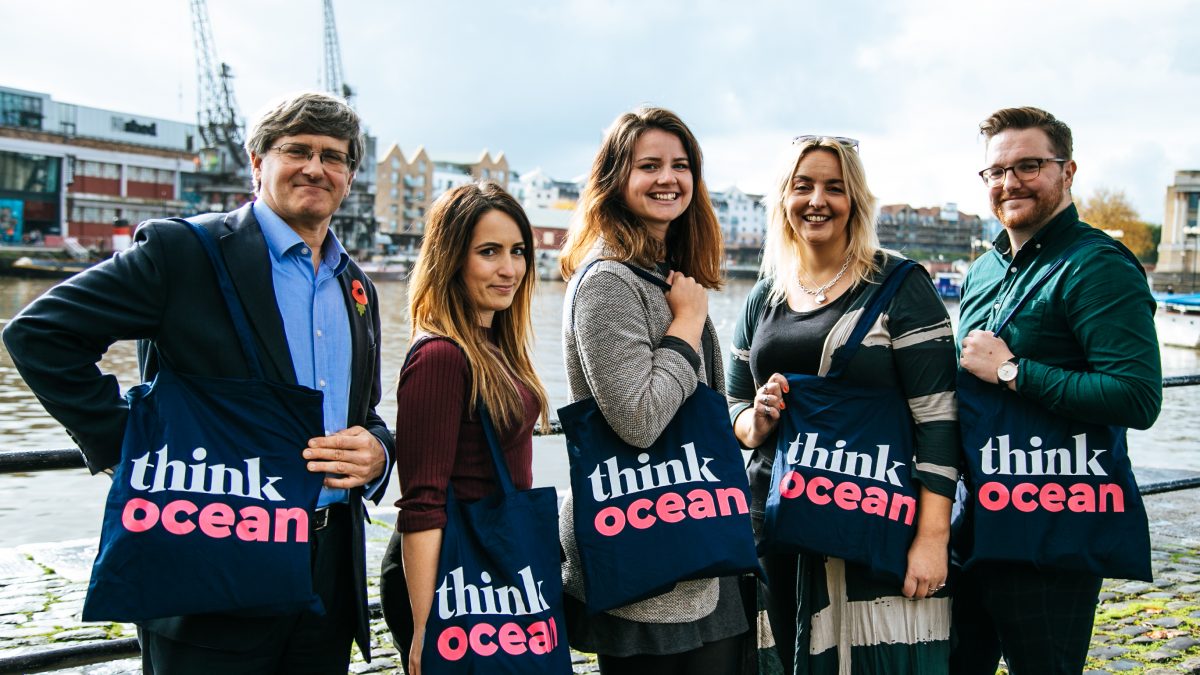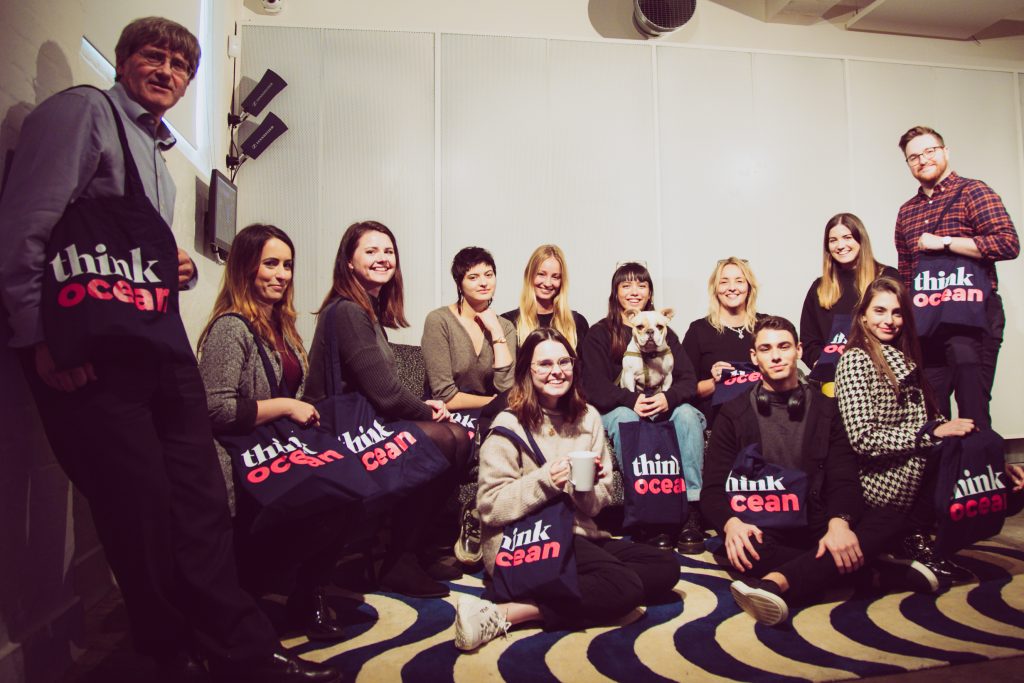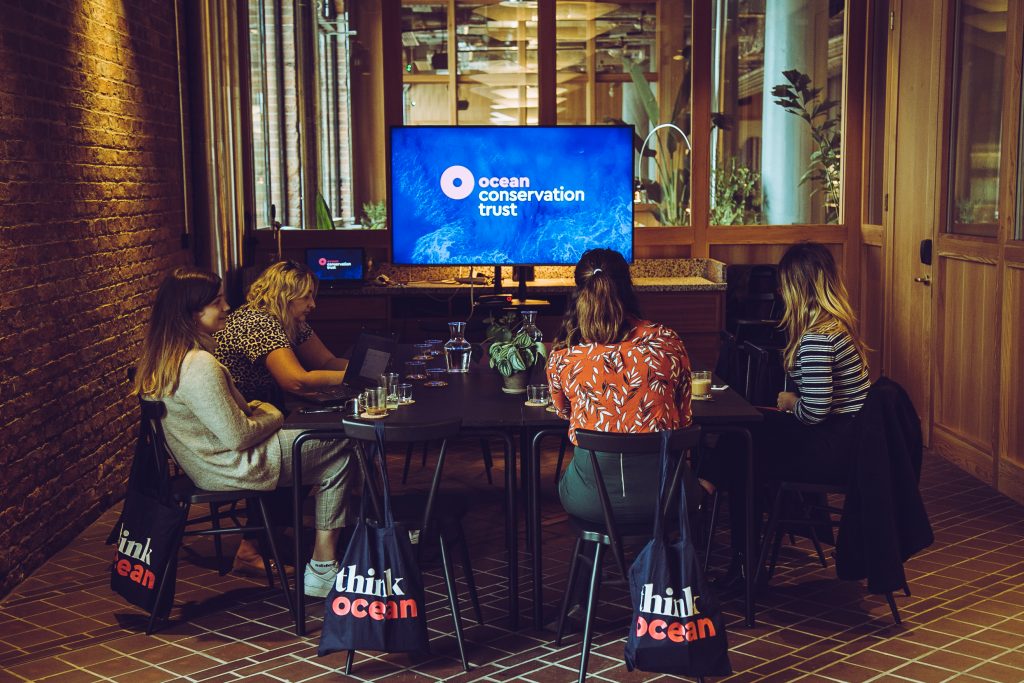Plymouth charity the Ocean Conservation Trust launches ambitious campaign to get as many people as possible thinking about the Ocean

GLOSSYBOX GETS COSY WITH THEIR ‘WINTER WARMERS’ EDIT
1st November 2019
OM Magazine, Issue 131, December 2019
26th November 2019Plymouth conservation charity, the Ocean Conservation Trust – which runs much-loved city attraction, the National Marine Aquarium – is launching an optimistic campaign to get people across the UK thinking about the Ocean, starting today in Britain’s Ocean City.
As the national conversation around climate change continues to gather momentum, the charity wants to ensure that the Ocean – which provides half of the oxygen we breath and sustains all life on earth – isn’t forgotten, and in a bid to bring it to the forefront of people’s minds and create more of a space for it in environmental conversations, is working with influencers from across the country to bring the Ocean into the mass consciousness.
This week, the charity, which focuses on the two key areas of habitat restoration and behaviour change, travelled to events in Bristol, Manchester and London to meet its ‘Ocean Advocates’, who have signed up to help it deliver its important message far and wide. The campaign – dubbed ‘Think Ocean’ – officially launches today, both in Plymouth and across the rest of the country – and will take an optimistic approach to getting people to think about the Ocean, shining a spotlight on happy memories, exhilarating experiences and benefits to wellbeing.
Following the Sir David Attenborough documentary, Blue Planet, the issue of plastic pollution in our Ocean has become the topic of widespread discussion across the UK and around the world, with the Government having implemented a ban on items including single-use plastic straws and cotton buds, as well as ingredients including microbeads – both of which have been responsible for a huge amount of pollution in our Ocean and pose ongoing threats to marine life.
Many individuals have also taken steps to reduce their own consumption of single-use plastic, but the Ocean Conservation Trust says that important conversations about the future of our planet as a whole often fail to acknowledge the vital role that is played by the Ocean.
Now, it is hoping to build on the positive momentum created by the ‘Blue Planet effect’ and get everyone thinking about the Ocean in their daily lives.
Roger Maslin, CEO of the Ocean Conservation Trust, said: “The Ocean drives the climate, makes the Earth habitable and sustains all life. Yet despite being vitally important in so many ways, its presence in the mainstream media and on the political stage is lacking. At the Ocean Conservation Trust, we want to change this and get as many people thinking about the Ocean, in positive ways, as we can.”
“Many of us have happy memories of the Ocean, whether that’s a childhood day at the beach building sandcastles or a more recent adventure surfing with friends. But some of us have less obvious ones, too. If you don’t live near the beach, you might have gone for a swim in a river or lake, taken a walk beside a canal, visited an aquarium or tuned into calming Ocean sounds as part of meditation practice – so whether directly or indirectly, it means something to us all.”
It’s not just about happy memories of the Ocean though, and Head of Conservation Education and Communications, Nicola Bridge, says that the Ocean plays a far greater role in our daily lives than many of us realise.
“The Ocean is a part of all of our daily routines, sometimes in ways that might surprise you. When you turn on your tap in the morning to brush your teeth, the water you use, as well as the algae in your toothpaste, comes from the Ocean. When you watch TV or use the internet, some of the materials used to make that happen have come from the Ocean. And when you buy your favourite foods at the supermarket, many of those have been shipped over to the UK, via the Ocean. Most importantly perhaps, though, is the fact that every time you breathe, half of the oxygen you take in has come from the Ocean – so we literally need it to survive.”
In helping people to recognise the ways in which the Ocean is connected to their daily lives, the charity hopes to lay the groundwork for deeper thinking into how our daily actions impact upon the Ocean, too – and in January 2020, it is due to launch an ambitious behaviour change conservation campaign that will help people to live a more Ocean friendly life. Details of the campaign are still being kept under wraps, but the charity is hoping to make a big impact in 2020.
Nicola Bridge explained: “Our own experience, combined with a growing body of evidence, has shown that personal experiences and connectedness with nature are the foundation for lifelong support for conservation. Telling people facts and science isn’t enough to make them want to make changes in their lives to benefit the Ocean – but experiencing and connecting with it, which makes people love and value it, is. Once they love it, they will want to take care of it – and only then will they be ready to change.
“Our approach, as a progressive Ocean conservation charity, is to be optimistic, putting people at the centre of conservation and helping them to have these great experiences with the Ocean and to appreciate it for all that it is.
It’s then that we can begin helping them to understand how they can be a part of the solution. We can all do our bit to help if we Think Ocean. Ultimately, our aim is to inspire positive behaviour change to create a healthy Ocean for our futures – and for the benefit and enjoyment of all.”
The Ocean Conservation Trust makes it its mission to connect as many people with the Ocean as possible, in meaningful ways – and to date, it has connected more than 3,000,000 people with the Ocean through face-to-face interactions at its centre of Ocean excellence in Plymouth, and a further 5 million people via its online platforms. It has also educated over 350,000 children school pupils about our Ocean, as well as running conservation projects, across the globe that have spanned 13 countries to date.






